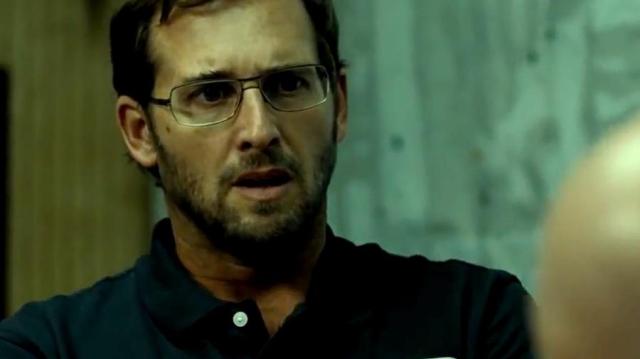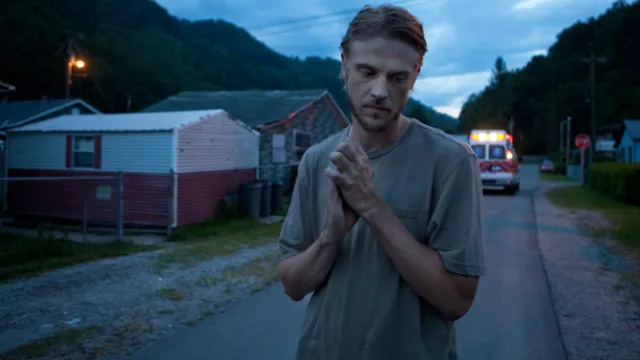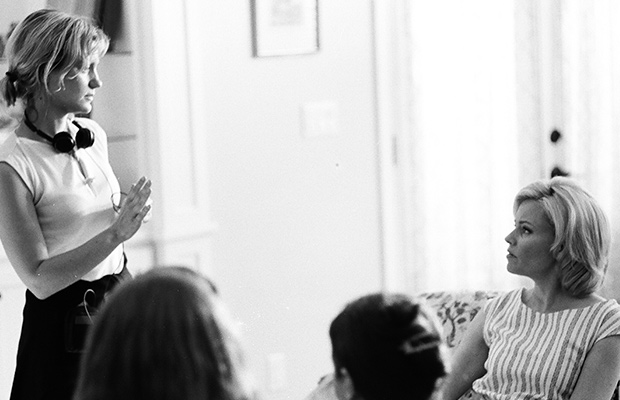Sara Colangelo has been one to watch since debuting her prize-winning short Little Accidents in 2010. Making the jump to the big screen with her first feature (also titled Little Accidents – more on that below), she continues to address issues of communal tragedy.
Colangelo’s film stars Elizabeth Banks, Josh Lucas, Chloe Sevigny, and Boyd Holbrook, and is set in a West Virginia mining town in the aftermath of a tragedy which killed all but one man (Holbrook). As the town and company remain at odds over finding fault and placing blame, the supervisor named as being at fault (Lucas) deals with his own tragedy when his son goes missing, causing tension in his marriage to Diane (Elizabeth Banks). These woven-together storylines address domestic and political themes with Colangelo’s compassionate touch, taking a serious look at isolated and class-divided mining communities.
The Mary Sue: You actually made a Little Accidents short before making this feature. How did you expand the short into a full-length film?
Sara Colangelo: It was never meant to be a literal expansion on the short film, but for a number of reasons, the title ended up working for the feature. But what was thematically similar was setting a traumatic event in the past, and the challenge of never allowing the audience to see it happen on screen and only experience the horrors through the characters reactions in the aftermath. In the case of the short, we saw the aftermath years later; while in the case of this film, it was just a matter of months. With the short film, it was about a woman in a factory whose world was spiraling out of control, and the audience thinks she has just met this young man; when in actuality, it is someone she knew well in high school who was in a terrible car accident. And you are kind of experiencing that story through her perspective years later. I wanted to continue that exploration, but with a completely different set of characters and circumstances. And in both, I was interested in industrial and post-industrial America; one-company towns with a definite division of class.
TMS: There are a lot of towns with that kind of singular industry. What is it particularly about coal mining towns that interested you?
Colangelo: I think prior to writing the feature I was reading a lot about the coal industry, and was fascinated by it and how much I never knew. It is an industry responsible for about 50% of our electricity and keeps our lights on, and yet so few really know about the daily grind for these miners; what it’s like to be in a coal mine, what the hours and shifts are like. And I started reading articles and going on YouTube to see men going into mines and what the machines are like. And it is also a very controversial industry and is an industry in transition, which was sort of interesting to me. And it had an aesthetic appeal to me as a writer to have characters going underground, and the metaphor of burying secrets, which is thematically what the film is about.

TMS: Did you write the screenplay before or after visiting coal mining towns?
Colangelo: It was a mix. I had written a first draft in which I had gotten all the structural stuff in place. And I left out a lot of details. And while I hadn’t gone down to Appalachia yet, I read the transcripts from the US labor department, which are all public record and available online. So I was able to listen online to testimony of miners, which ended up being very similar to what I wrote for Amos (Holbrook), which bookends the film. And I got a sense of the idiosyncrasy of these communities and also how the men treated their work; how they approached the dangers of the work and expressed their emotions. A number of the men on those tapes survived accidents and you get a sense of how they feel listening to their testimony. But once I started work on the second and third acts, I went down there and talked with people and saw it with [my] own eyes, because you can’t get those kind of details, what houses or communities are like, in testimony.
TMS: And one of the things which wouldn’t be in the testimony are the women in the town, because it still seems to be a very single-sex industry, so just listening to the testimony.
Colangelo: Of all the time I spent down there, I think I met one woman that was a coal miner, which could be a movie unto itself. But there is something really amazing about meeting these wives and girlfriends and mothers, and what it is like to be above ground. The anxiety they live with and what it is like when they get that phone call. Sometimes it’s a big accident, sometimes it’s a small accident. Some of them go 20-30 years without an accident, but there is still day-to-day anxiety. And they have to repress some of that in order to get through the day. But because these are one-industry towns, there are structures in place, in the church or otherwise, to help them get through it, and it helps that everyone is going through the same thing.
 TMS: I know you shot in in a coal mining town in West Virginia, and the movie looks all the more interesting and realistic because of it. Was it hard to make a movie down there and find a town that would open themselves up to you?
TMS: I know you shot in in a coal mining town in West Virginia, and the movie looks all the more interesting and realistic because of it. Was it hard to make a movie down there and find a town that would open themselves up to you?
Colangelo: We wanted the film to have a documentary, naturalistic feel about it, so we had to shoot on location, and I really wanted to find a town we wouldn’t have to tinker with. But that being the case, there is a fantastic tax credit and film commission in West Virginia, but it is still really rare for a film to shoot in the state, especially where we were. There was no infrastructure and it was hard to get into some of these communities and build trust with people. The first week or two, people immediately stepped back when we said we were filmmakers. They said to us that there had been a lot of documentaries in that area which were very critical of surface mining or the plight of drugs in these communities, and I think a lot of people felt they had been misrepresented by the film industry in those documentaries. So at the time we came in, they were very sensitive to it. But it got easier once we said we were fictional filmmakers, but even so, they were asking, “Are you anti-coal?” and “How are you painting coal miners?” So we encouraged them to read the script, to see the film was more about mourning and people connecting, and while there are politics, it has a human dimension.
TMS: One of the things I wanted to commend you for was that none of the characters can be clearly defined as heroes or villains. Was that a goal to not have a clear protagonist/antagonist in the film?
Colangelo: I went into the project knowing that I didn’t want the film to be some kind of clear depiction of a black and white worldview. And what I found in my reading and talking with people is the fact that there are some questions in regards to regulations. I think the film is critical of corporate America because of what it puts these workers through, but I liked the idea that Bill (Josh Lucas) is not powerful enough to protect himself, and yet not low enough within the company to be considered a little fish, and can therefore be held responsible. He was kind of thrown under the bus by the company as their scap goat. And I liked the fact that Diane (Elizabeth Banks) is unlikable at the beginning, but as the story goes on, she becomes more and more aware of the community, and gains a bit of empathy.
Lesley Coffin is a New York transplant from the midwest. She is the New York-based writer/podcast editor for Filmoria and film contributor at The Interrobang. When not doing that, she’s writing books on classic Hollywood, including Lew Ayres: Hollywood’s Conscientious Objector and her new book Hitchcock’s Stars: Alfred Hitchcock and the Hollywood Studio System.
Are you following The Mary Sue on Twitter, Facebook, Tumblr, Pinterest, & Google +?









Published: Jan 20, 2015 08:00 pm